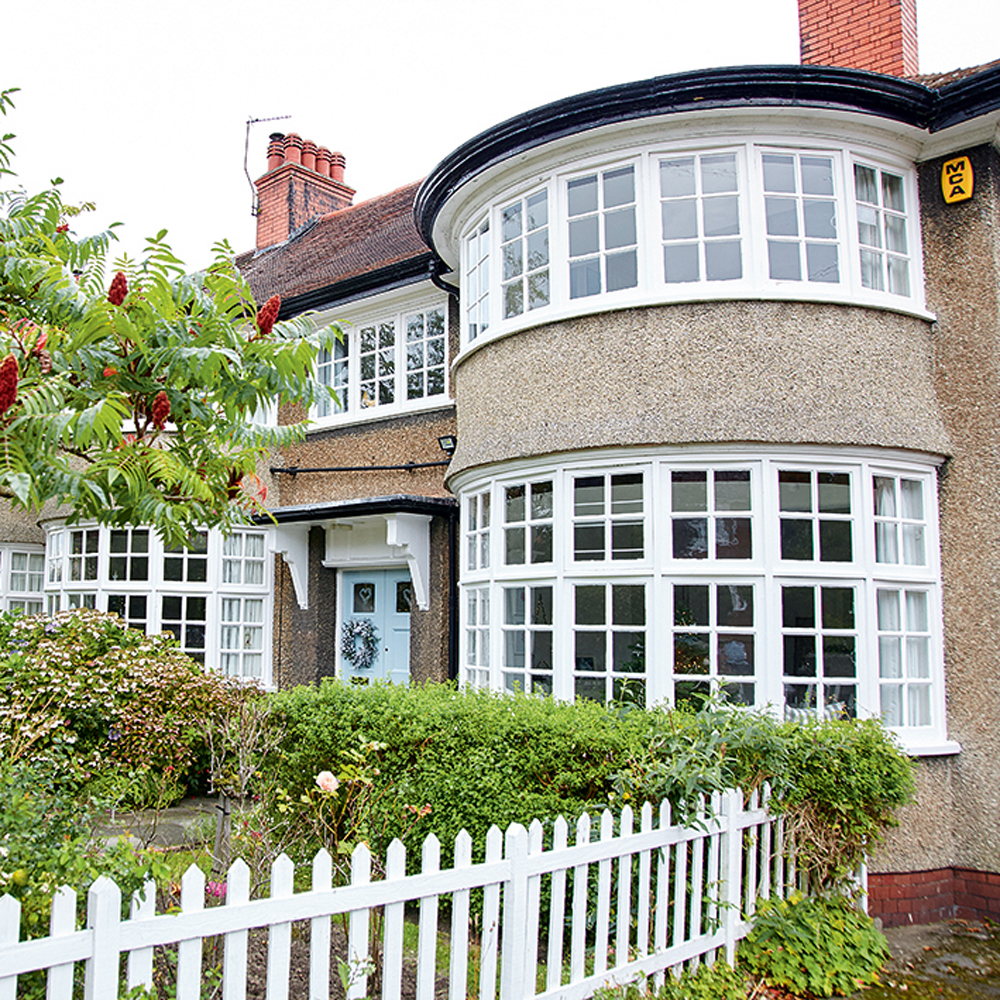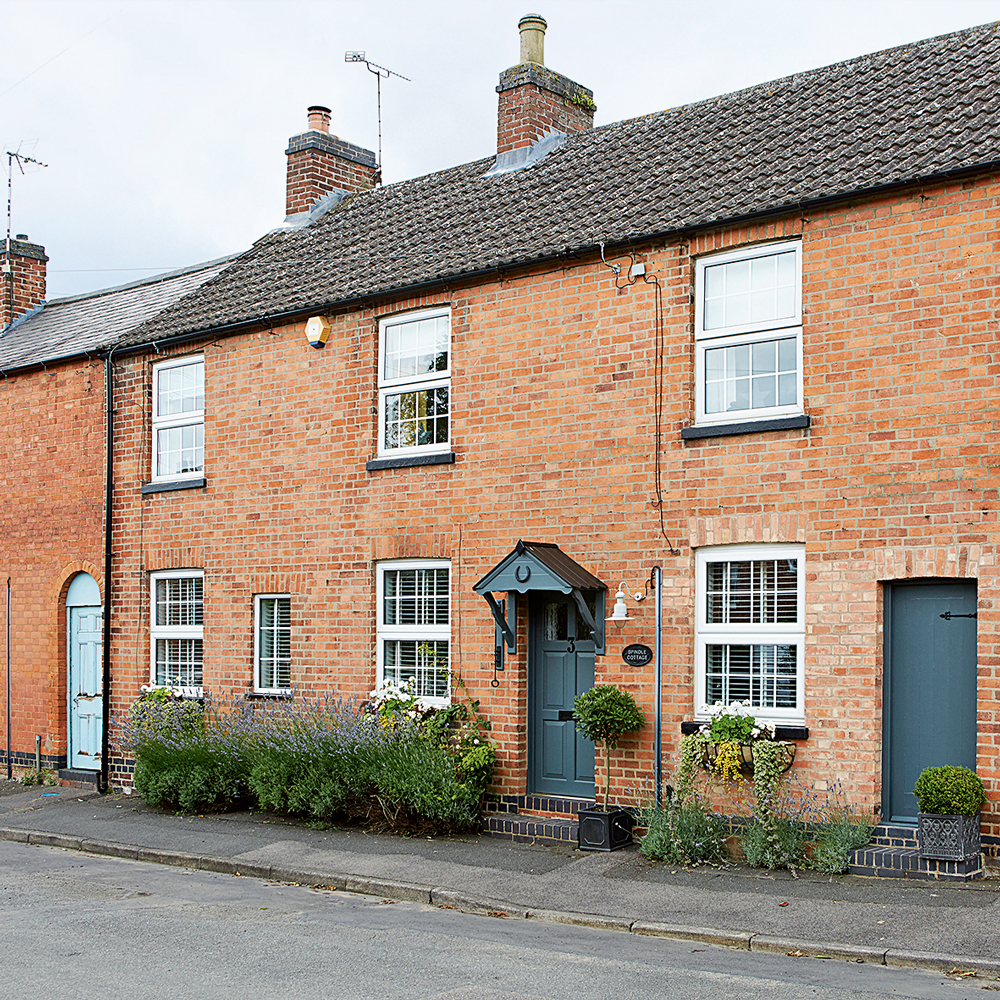Buying a house with cash – the process explained
Check out our guide for everything you need to know about purchasing a home with cash

Sign up to our newsletter for style inspiration, real homes, project and garden advice and shopping know-how
You are now subscribed
Your newsletter sign-up was successful
If you’re lucky enough to be in a financial position to buy a house with cash there are many advantages, not least that you shed the burden of monthly remortgage payments. However, there are also some disadvantages to this house-buying route, too.
The meaning of a cash buyer when buying a house is often misunderstood. If you can only afford to buy a house without a mortgage once the sale of your house has gone through, then you are not a cash buyer.
You have to have the monies readily available at the time of putting in an offer on a house to be officially recognised as a cash buyer.
Buying a house with cash

Here we answer some of the most-asked questions when buying a house with cash Vs mortgage payments, and look at the pros and cons.
1. What are the advantages of buying a house with cash vs a mortgage?
The main benefit of a cash sale is that they tend to complete faster than if you are buying a home with a mortgage as there is no complicated house chain, nor the complicated and time-consuming route of ticking all your lender’s boxes. ‘Cash sales aren’t reliant on mortgage valuations or the few days’ wait for mortgage funds to be released, meaning it is feasible to complete your purchase within a few weeks,’ says Emma Fildes, Founder of Brick Weaver.
However, David Jabbari CEO of UK conveyancers Muve warns cash buyers shouldn’t automatically assume a quick sale: ‘Being able to move more quickly is not necessarily an advantage if the property is part of a chain, as you’re dependent on the timescale of your seller’s schedules,’ he says.
Another benefit is that in owning your own property outright, you remove the risk that your home will be repossessed by a mortgage lender should you struggle to meet your monthly repayments, which makes you more secure financially.
Sign up to our newsletter for style inspiration, real homes, project and garden advice and shopping know-how
2. Do cash buyers offer less?
Traditionally, cash buyers tend to offer less than the asking price as the money is assured which means the sale is less likely to fall through, as well as the potential for a quick sale.
However, David warns that if the market is aggressive, you’re less likely to get a deal: ‘In the current market, where houses are often selling for higher than their asking price due to high levels of demand, the cash buyer is not in such a strong position as they are in during a quieter market,’ he says.
3. Do I need a solicitor if I buy with cash?
Regardless of whether you pay with cash or a mortgage, you still need to employ a solicitor or conveyancer to complete all the legal processes for your house purchase. Factor in solicitor fees for buying a house when calculating overall expenditure.
You’ll need to do all the checks on the property, searches, pay stamp duty tax, as well put together contracts and liaise between all the other buyer’s and seller’s solicitors in the chain.
‘In theory, you can do your own conveyancing; the problem is that the solicitor acting for the other party (the buyer or seller) would not deal with you due to regulatory concerns, so this makes completing the relevant legal work impossible without a solicitor,’ says David.
‘A solicitor will do things such as anti-money laundering and compliance checks, to ensure the process is secure,’ says Dale Anderson MD of Fabrik Invest.

4. Can I get a mortgage after buying a house with cash?
Buying a house in cash doesn’t restrict you from obtaining a mortgage on the property at a later stage, also known as remortgaging. However, every lender will have its own policy and rules on how quickly after the sale that they will approve a remortgage, as well as how much loan-to-value (LVT) they will allow in a remortgage – the percentage of the property that they will give you as a loan.
‘The purpose of the loan will need to fall into the lender's criteria for lending, e.g. home improvements, paying university fees, for example. It is best to check with individual lenders on their policy,’ advises David.
5. How long does it take to buy a house if paying cash?
As long as the seller doesn’t need the buyer’s funds to purchase their next property, the cash purchase should proceed quickly, potentially within a few weeks. ‘Cash sales do typically go through quicker – within around 30 days in most cases, provided there is no onward chain on the property,’ says Dale.
6. What’s the process of buying a house with cash?
It’s very much the same as any other house sale. The only difference is that your solicitor doesn’t have to handle any correspondence with a lender, which means they are acting solely on your behalf.
‘Where there is a mortgage, the lawyer must also act for the lender and ensure that all the lender's checks are undertaken, including any special conditions that they may have insisted upon when making the mortgage offer,’ says David.
Dale advises: ‘You will typically put down a holding deposit and, once all the necessary checks have been made and contracts have been signed, you will transfer the full outstanding amount for the property purchase.’

7. How does buying a house in cash affect taxes?
The myth that you will be hit with a huge tax bill if you buy a home with cash is incorrect. The only tax due on a property purchase is stamp duty tax regardless of whether you bought with cash or a mortgage.
The only time more tax might be due is on any income from a buy-to-let rental or holiday letting. In these cases, you may be able to claim tax relief on interest on buy-to-let mortgage payments (if you bought with a mortgage). However, David advises that it’s a complex area. ‘It is best to get tax advice to understand it fully.’
8. How can I provide proof of funds?
It is a legal requirement for your solicitor or conveyancer to see a proof of source of your funds, to ensure the house purchase is not a result of a criminal activity. ‘They’re called anti -money laundering checks,’ says Dale.
‘The process can involve anything from asking for bank statements for a period showing where your purchase funds have derived from, to more modern solutions where law firms use open banking systems so that you can share these details automatically,’ says David.

Sophie Vening is a freelance journalist and editor with more than 16 years’ experience writing about homes and properties. She’s worked for some of the UK’s leading interiors, self-build and property titles including, Grand Designs, Ideal Home, House Beautiful, Build It, The Metro Homes & Property and The Evening Standard Homes & Property.
She enjoys writing about complex issues in an easy-to-understand way.